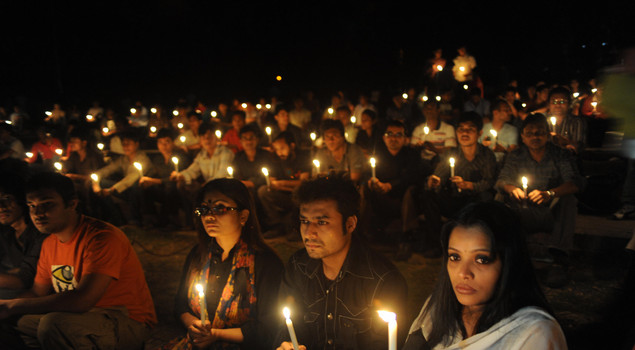By Karen Diep
Impunity Watch Reporter, Asia
DHAKA, Bangladesh – Today, the director-general of the Border Guard Bangladesh (BGB), Major General Anwar Hossain, stated that the last of the frontier force’s mutiny-driven battalion is near disbandment.

“Three of the (mutiny-driven) battalions have been abolished earlier while the fourth one, the 44 Battalion, is set to be abolished early next month on completion of due processes,” stated Major General Hossain.
On Saturday, the Bangladesh military court found 723 border guards, the former Bangladeshi Rifles (BDR), guilty of “joining and leading the mutiny.” The mutiny, which occurred in 2009, had lasted for 33 hours at BDR’s headquarters in Dhaka. Moreover, the military courts neither permitted the defendants to obtain legal counsel nor grant a right to appeal.
“In all, 735 border guards were charged. Two died during the trial and 10 were acquitted,” relayed prosecutor Gazi Zillur Rahman to the AFP news agency. “Of the 723 found guilty, 64 soldiers were sentenced to seven years in jail.”
According to Indian Daily News, hundreds of nurses and sportsmen, who have previously represented Bangladesh internationally, were among those convicted.
Two days after, a Bangladesh court jailed 723 border guards for their involvement. Moreover, the court stated that the verdict was final in a sequence of mass trials lead by the Bangladesh military.
According to BBC, approximately 6,000 people have been jailed for the mutiny over pay and conditions with 74 people dead. Moreover, among the deceased were at least 57 senior army officers whose bodies were dumped in sewers.
Human Rights Watch (HRW) has faulted the trials for the death of these suspects while in custody of authorities and for others who were tortured and beaten.
In response, the Bangladesh military has casted HRW’s claims as baseless. Moreover, the Bangladesh military alleged that the death of the suspects were from natural causes, such as heart related complications.
According to News Track India, Major General Hossain stated that four new battalions have been created with nearly 10,000 new recruits to replace the border force’s strength after the disbandment of the 24th, 13nth, 36th and 44th battalions.
The BGB, also known as “The Vigilant Sentinels of the National Frontier,” is the oldest uniformed force in Bangladesh and is predominantly responsible for the country’s border security. It is also the Ministry of Home Affair’s paramilitary force.
For further information, please see:
News Track India – Bangladesh Border Guards to abolish last mutiny-stained battalion – 24 Oct. 2012
Zee News – B’desh Border Guards to abolish last mutiny stained battalion – 24 Oct. 2012
BBC – Bangladesh mutiny: 723 border guards jailed – 22 Oct. 2012
India Daily News – Bangladesh jails 723 guards for 2009 mutiny – 20 Oct. 2012

